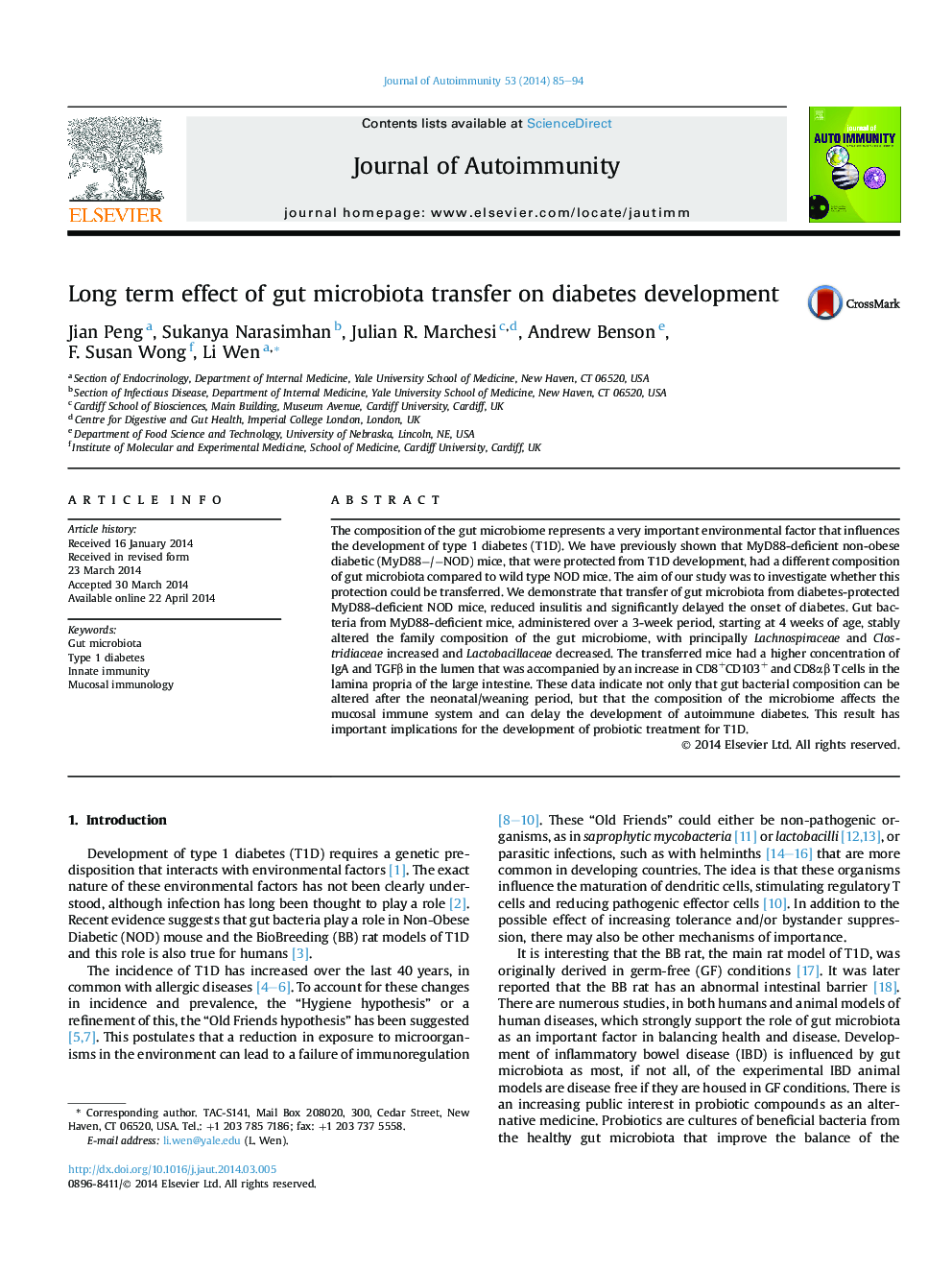| Article ID | Journal | Published Year | Pages | File Type |
|---|---|---|---|---|
| 3367755 | Journal of Autoimmunity | 2014 | 10 Pages |
•Gut microbiota transfer has a long-term effect on diabetes development.•Gut microbiota transfer alters the communities within the host gut microbiome.•Diabetes resistant B6 mice harbor diabetes promoting gut microbiota.•Diabetes protective gut microbiota increase IgA and TGF-β mucosal immune responses in the hosts.•This work supports the concept of a probiotic approach for prevention of type 1 diabetes.
The composition of the gut microbiome represents a very important environmental factor that influences the development of type 1 diabetes (T1D). We have previously shown that MyD88-deficient non-obese diabetic (MyD88−/−NOD) mice, that were protected from T1D development, had a different composition of gut microbiota compared to wild type NOD mice. The aim of our study was to investigate whether this protection could be transferred. We demonstrate that transfer of gut microbiota from diabetes-protected MyD88-deficient NOD mice, reduced insulitis and significantly delayed the onset of diabetes. Gut bacteria from MyD88-deficient mice, administered over a 3-week period, starting at 4 weeks of age, stably altered the family composition of the gut microbiome, with principally Lachnospiraceae and Clostridiaceae increased and Lactobacillaceae decreased. The transferred mice had a higher concentration of IgA and TGFβ in the lumen that was accompanied by an increase in CD8+CD103+ and CD8αβ T cells in the lamina propria of the large intestine. These data indicate not only that gut bacterial composition can be altered after the neonatal/weaning period, but that the composition of the microbiome affects the mucosal immune system and can delay the development of autoimmune diabetes. This result has important implications for the development of probiotic treatment for T1D.
